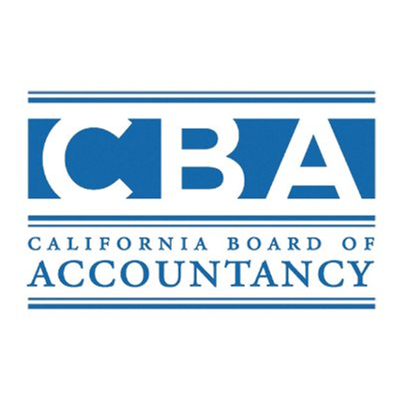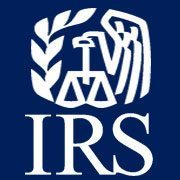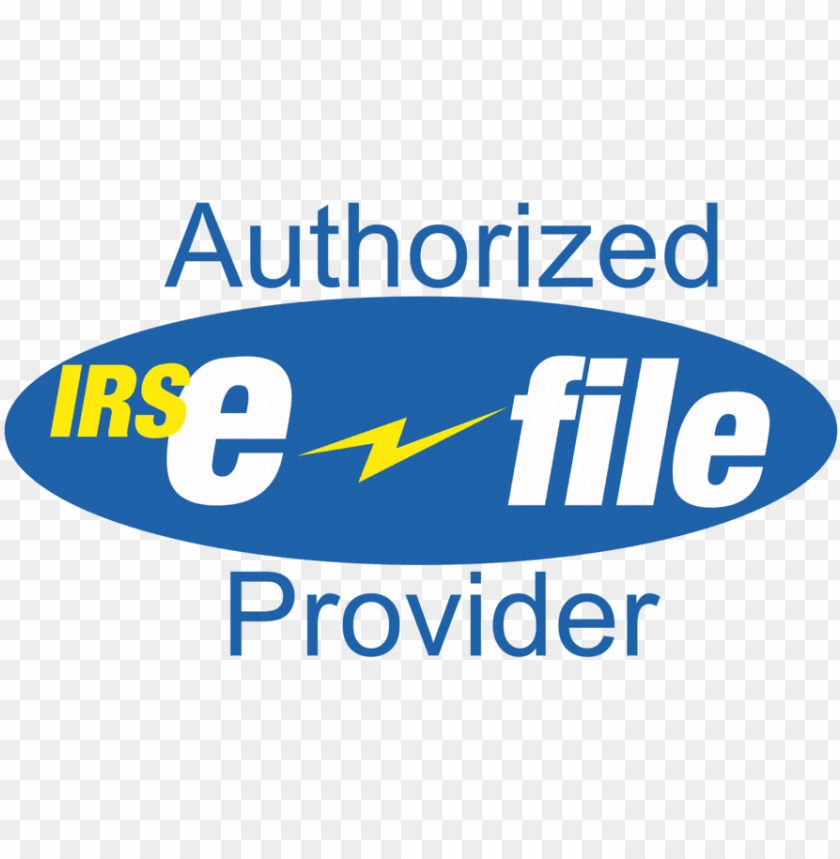
美国 加州 大洛杉矶地区
电话: (949)667-9998
美国 加州 旧金山硅谷地区
电话: (408)335-6606
美国 华盛顿州 大西雅图地区
电话: (949)667-9998
中国 北京 金融街
电话: 167-1005-2153
中国 上海 浦东 陆家嘴
电话: 167-2215-4742
中国 深圳 福田区
电话: 167-1005-2153
税 务 资 讯
TAXATION INFORMATION
美国国税局总结了 2022 年的税务欺诈清单;敦促纳税人注意合理的避税策略
加密货币、未备案、滥用联合保护地役权、滥用微型俘虏交易列入名单
美国国税局 (Internal Revenue Service)总结了 2022 年申报季的年度税务脏区欺诈清单,并警告纳税人避免被误导而使用虚假的避税策略。
美国国税局警告纳税人注意兜售这些计划的发起人。作为其使命的一部分,美国国税局专注于从事各种类型的税收违法行为的高收入纳税人,从最基本的,未能提交申报表到涉及滥用银团保护地役权交易和滥用国内微型俘虏的复杂交易保险安排。
美国国税局局长查克·雷蒂格 (Chuck Rettig) 说:“这些避税策略被宣传给毫无戒心的人,他们承诺减税或完全避税,这些承诺好得令人难以置信。” “纳税人不应该自欺欺人地相信他们可以向美国国税局隐瞒收入。该机构继续关注这些交易,参与这些交易的人将面临严厉的民事处罚或刑事指控。”
美国国税局发布“税务脏区欺诈清单”,作为向纳税人提供信息的广泛努力的一部分。人们应该小心,不要上当受骗,使用高额费用的陈旧滥用安排以及其他肮脏的计划。
美国国税局近年来加大了打击滥用计划的力度。作为这项更广泛努力的一部分,美国国税局首席法律顾问办公室今年早些时候宣布,它将额外聘请多达 200 名律师,以帮助该机构打击滥用的联合保护地役权和微型俘虏交易以及其他滥用计划。
上周,美国国税局启动了 2022 年黑名单 ,列出了纳税人需要避免的四项大力宣传的滥用交易。美国国税局随后推出了一些针对普通纳税人的常见骗局。这些以消费者为中心的骗局可以掠夺任何个人或组织,窃取敏感的财务信息或金钱,并且在某些情况下让纳税人清理法律混乱。
对于今天的“税务脏区欺诈清单”的结论,美国国税局重点介绍了其中四种计划,这些计划通常针对正在寻找避税方法的高净值个人。这些计划的投资募集通常比电子邮件诈骗等可以打击任何人的广泛骗局的募集更有针对性。
将资产隐藏在纳税人希望的匿名账户中,或者干脆不提交纳税申报表,这些避税骗局已经存在了几十年。美国国税局仍然致力于制止这些欺骗纳税人的方法,这些纳税人每年都可靠地缴纳其公平份额的税款。
美国国税局警告任何考虑使用这些计划之一或类似计划的人,该机构将继续改进这些领域的工作,这要归功于新的和不断发展的数据分析工具和增强的文件匹配。这些“税务脏区欺诈清单”包括:
(1)在离岸账户中隐瞒资产和数字资产(数字代币)的不当报告:
美国国税局仍然专注于阻止那些将资产隐藏在离岸账户和持有加密代币或其他数字资产的账户中的人的避税行为。
国际税收合规是美国国税局的首要任务。复杂的国际避税计划和跨境交易中出现的新模式和趋势加剧了人们对具有国际足迹的个人和实体缺乏税收合规的担忧。随着国际税收和洗钱犯罪活动的增加,美国国税局通过帮助美国纳税人了解和履行其纳税义务,并在全球范围内以诚信和公平的方式执法,继续保护美国税收制度的完整性。
多年来,许多人已被确认通过试图在离岸银行、经纪账户或代理人实体中隐藏收入来逃避美国税收。然后,他们使用借记卡、信用卡、电汇或其他安排获取资金。一些人使用外国信托、雇员租赁计划、私人年金和结构性交易试图隐瞒账户或保险计划的真正所有者。
美国人对全球收入征税。仅将钱存入离岸账户这一事实并不能使其远离美国税收制度。根据伪证处罚,美国人必须报告来自离岸基金和其他外国资产的收入。美国国税局使用各种来源来识别鼓励他人将资产隐藏在海外的发起人。
主流金融机构以及经济的许多其他部分正在采用数字资产。在过去十年左右的时间里,全球数字资产的激增给数字资产的税务管理带来了挑战,部分原因是人们错误地认为税务机关无法检测到数字资产账户。不道德的发起人继续延续这个神话,并断言纳税人可以轻易隐瞒他们持有的数字资产。
美国国税局敦促纳税人不要被误导相信这个关于数字资产的故事情节,否则可能会因未能报告涉及数字资产的交易而导致民事欺诈处罚和刑事指控。
“美国国税局能够在执行我们国家的税法期间识别和跟踪国际账户以及数字资产的其他匿名交易,”Rettig 说。 “我们敦促每个人都遵守他们的备案和报告责任,避免在最终对他们不利的计划中妥协。”
(2)不报税的高收入个人:美国国税局继续关注那些选择无视法律而不报税的人,尤其是那些年收入超过 100,000 美元的人。
尽最大努力提交纳税申报表和缴纳税款或签订纳税协议的纳税人应该知道,美国国税局正在追查其他未能履行申报和缴纳义务的人。好消息是大多数人都按时报税并缴纳了他们应得的税款。
那些即使有合法申报要求也选择不申报的人,尤其是那些年收入超过 100,000 美元但不申报的人,代表了一个合规问题,该问题仍然是美国国税局的首要任务。
对于那些可能被错误地认为不提交纳税申报表是明智之举的纳税人来说,这是一个重要的提醒。未提交罚款最初比未支付罚款高得多。按时提交准确的申报表并在需要时制定付款计划比不提交更有优势。未提交罚款通常是每个月或一个月的部分时间延迟纳税申报的未缴税款的 5%。罚款一般不会超过未缴税款的25%。未缴罚款通常是每个月或部分月份未缴税款的未缴税款的 0.5%。罚款将不超过未缴税款的 25%。
如果一个人没有申报被认为是欺诈性的,对于迟交的每个月或一个月的部分时间,罚款通常从每月 5% 增加到 15%,最高罚款通常从 25% 增加到 75%。
(3)滥用联合保护地役权:在联合保护地役权中,发起人采用允许保护地役权的税法条款,并通过对未开发土地(或者,对于一些专门的土地,历史建筑的外墙)进行夸大评估来扭曲它,并通过使用没有合法商业目的的合伙安排。这些滥用安排无非是通过严重夸大的税收减免来博弈税收制度,并为发起人收取高额费用。
美国国税局敦促纳税人避免陷入这些由无良发起人出售的交易。如果某件事听起来好得令人难以置信,那么它可能就是这样。人们可能会因参与有问题的交易(例如滥用联合保护地役权)而面临严厉的罚款风险。
在过去五年中,美国国税局审查了数百起联合保护地役权交易,其中数百亿美元的扣除额被不当申报。这是一项全机构范围的工作,使用了大量资源和数千个工作小时。美国国税局对这些交易进行 100% 的审查,并计划在可预见的未来继续这样做。数以百计的此类交易已经告上法庭,未来可能还会有数百宗交易告上法庭。
“我们正在投入大量资源来打击滥用保护地役权,因为这对于税收管理的公平性很重要,”Rettig 专员说。 “工薪阶层年复一年地支付他们应得的份额是不公平的,但高净值个人可以在房地产投资的幌子下,通过高估保护地役权捐款来避免数百万美元的税收。”
(4)滥用微型自保保险安排:在滥用的“微型自保”结构中,发起人、会计师或财富规划师说服密切持有实体的所有者参与缺乏许多保险属性的计划。
例如,承保范围可能“承保”难以置信的风险,无法满足真正的业务需求或重复纳税人的商业承保范围。根据这些安排支付的“保险费”往往过高,并被用来规避税法。
最近,美国国税局加强了对使用可能滥用离岸专属保险公司的变体的执法力度。滥用微型专属交易仍然是高度优先关注的领域。
美国国税局进行了数千次参与者检查和发起人调查,评估了数亿美元的额外税款和所欠罚款,并成功启动了解决方案。有关和解计划的更多信息,请参见 IR-2020-26。美国国税局的活动得到独立上诉办公室的支持,自 2017 年以来,美国国税局赢得了所有微型俘虏税务法院和上诉法院案件的胜诉,并根据案情作出裁决。
IRS wraps up 2022 ‘Dirty Dozen’ scams list; agency urges taxpayers to watch out for tax avoidance strategies
Cryptocurrency, non-filing, abusive syndicated conservation easement, abusive micro-captive deals make list
WASHINGTON – The Internal Revenue Service today wrapped up its annual “Dirty Dozen” scams list for the 2022 filing season, with a warning to taxpayers to avoid being misled into using bogus tax avoidance strategies.
The IRS warned taxpayers to watch out for promoters peddling these schemes. As part of its mission, the IRS is focused on high-income taxpayers who engage in various types of tax violations, ranging from the most basic, failing to file returns up to sophisticated transactions involving abusive syndicated conservation easement deals and abusive domestic micro-captive insurance arrangements.
“These tax avoidance strategies are promoted to unsuspecting folks with too-good-to-be-true promises of reducing taxes or avoiding taxes altogether,” said IRS Commissioner Chuck Rettig. “Taxpayers should not kid themselves into believing they can hide income from the IRS. The agency continues to focus on these deals, and people who engage in them face steep civil penalties or criminal charges.”
The IRS publishes the Dirty Dozen as part of a broad ranging effort to inform taxpayers. People should be careful not to get conned into using well-worn abusive arrangements with high fees as well as the other Dirty Dozen schemes.
The IRS has stepped up efforts on abusive schemes in recent years. As part of this wider effort, the IRS Office of Chief Counsel announced earlier this year it would hire up to 200 additional attorneys to help the agency combat abusive syndicated conservation easements and micro-captive transactions as well as other abusive schemes. (IR-2022-17).
Last week, the IRS kicked off the 2022 Dirty Dozen list (IR-2022-113) with four heavily promoted abusive deals that taxpayers need to avoid. The IRS followed this up with a number of common scams that can target average taxpayers. These consumer-focused scams can prey on any individual or organization, steal sensitive financial information or money, and in some cases leave the taxpayer to clean up the legal mess.
For today’s conclusion of the Dirty Dozen, the IRS highlights four other schemes that typically target high-net-worth individuals who are looking for ways to avoid paying taxes. Solicitations for investment in these schemes are generally more targeted than solicitations for widespread scams, such as email scams, that can hit anyone.
Hiding assets in what the taxpayer hopes is an anonymous account or simply not filing a return in the hopes of staying off the grid are tax avoidance scams that have been around for decades. The IRS remains committed to stopping these methods of cheating that short-change taxpayers who reliably pay their fair share of taxes every year.
The IRS warns anyone thinking about using one of these schemes – or similar ones – that the agency continues to improve work in these areas thanks to new and evolving data analytic tools and enhanced document matching. These Dirty Dozen schemes cover:
Concealing Assets in Offshore Accounts and Improper Reporting of Digital Assets:
The IRS remains focused on stopping tax avoidance by those who hide assets in offshore accounts and in accounts holding cryptocurrency or other digital assets.
International tax compliance is a top priority of the IRS. New patterns and trends emerging in complex international tax avoidance schemes and cross-border transactions have heightened concerns regarding the lack of tax compliance by individuals and entities with an international footprint. As international tax and money laundering crimes have increased, the IRS continues to protect the integrity of the U.S. tax system by helping American taxpayers to understand and meet their tax responsibilities and by enforcing the law with integrity and fairness, worldwide.
Over the years, numerous individuals have been identified as evading U.S. taxes by attempting to hide income in offshore banks, brokerage accounts or nominee entities. They then access the funds using debit cards, credit cards, wire transfers or other arrangements. Some individuals have used foreign trusts, employee-leasing schemes, private annuities and structured transactions attempting to conceal the true owner of accounts or insurance plans.
U.S. persons are taxed on worldwide income. The mere fact that money is placed in an offshore account does not put it out of reach of the U.S. tax system. U.S. persons are required, under penalty of perjury, to report income from offshore funds and other foreign holdings. The IRS uses a variety of sources to identify promoters who encourage others to hide their assets overseas.
Digital assets are being adopted by mainstream financial organizations along with many other parts of the economy. The proliferation of digital assets across the world in the last decade or so has created tax administration challenges regarding digital assets, in part because there is an incorrect perception that digital asset accounts are undetectable by tax authorities. Unscrupulous promoters continue to perpetuate this myth and make assertions that taxpayers can easily conceal their digital asset holdings.
The IRS urges taxpayers to not be misled into believing this storyline about digital assets and possibly exposing themselves to civil fraud penalties and criminal charges that could result from failure to report transactions involving digital assets.
“The IRS is able to identify and track otherwise anonymous transactions of international accounts as well as digital assets during the enforcement of our nation’s tax laws,” Rettig said. “We urge everyone to come into compliance with their filing and reporting responsibilities and avoid compromising themselves in schemes that will ultimately go badly for them.”
High-income individuals who don’t file tax returns: The IRS continues to focus on people who choose to ignore the law and not file a tax return, especially those individuals earning more than $100,000 a year.
Taxpayers who exercise their best efforts to file their tax returns and pay their taxes, or enter into agreements to pay their taxes, deserve to know that the IRS is pursuing others who have failed to satisfy their filing and payment obligations. The good news is most people file on time and pay their fair share of tax.
Those who choose not to file a return even when they have a legal filing requirement, and especially those earning more than $100,000 per year who don’t file, represent a compliance problem that continues to be a top priority of the IRS.
Here’s a key reminder for taxpayers who may be wrongly persuaded that not filing their return is a smart move. The Failure to File Penalty is initially much higher than the Failure to Pay Penalty. It is more advantageous to file an accurate return on time and set up a payment plan if needed than to not file. The Failure to File Penalty is generally 5% of the unpaid taxes for each month or part of a month that a tax return is late. The penalty generally will not exceed 25% of unpaid taxes. The Failure to Pay Penalty is generally 0.5% of the unpaid taxes for each month or part of a month the tax remains unpaid. The penalty will not exceed 25% of unpaid taxes.
If a person’s failure to file is deemed fraudulent, the penalty generally increases from 5 percent per month to 15 percent for each month or part of a month the return is late, with the maximum penalty generally increasing from 25 percent to 75 percent.
Abusive Syndicated Conservation Easements: In syndicated conservation easements, promoters take a provision of the tax law allowing for conservation easements and twist it by using inflated appraisals of undeveloped land (or, for a few specialized ones, the facades of historic buildings), and by using partnership arrangements devoid of a legitimate business purpose. These abusive arrangements do nothing more than game the tax system with grossly inflated tax deductions and generate high fees for promoters.
The IRS urges taxpayers to avoid becoming ensnared in these deals sold by unscrupulous promoters. If something sounds too good to be true, then it probably is. People can risk severe monetary penalties for engaging in questionable deals such as abusive syndicated conservation easements.
In the last five years, the IRS has examined many hundreds of syndicated conservation easement deals where tens of billions of dollars of deductions were improperly claimed. It is an agency-wide effort using a significant number of resources and thousands of staff hours. The IRS examines 100 percent of these deals and plans to continue doing so for the foreseeable future. Hundreds of these deals have gone to court and hundreds more will likely end up in court in the future.
“We are devoting a lot of resources to combating abusive conservation easements because it is important for fairness in tax administration,” Commissioner Rettig stated. “It is not fair that wage-earners pay their fair share year after year but high-net-worth individuals can, under the guise of a real estate investment, avoid millions of dollars in tax through overvalued conservation easement contributions.”
Abusive Micro-Captive Insurance Arrangements: In abusive “micro-captive” structures, promoters, accountants, or wealth planners persuade owners of closely held entities to participate in schemes that lack many of the attributes of insurance.
For example, coverages may “insure” implausible risks, fail to match genuine business needs or duplicate the taxpayer’s commercial coverages. The “premiums” paid under these arrangements are often excessive and are used to skirt the tax law.
Recently, the IRS has stepped up enforcement against a variation using potentially abusive offshore captive insurance companies. Abusive micro-captive transactions continue to be a high-priority area of focus.
The IRS has conducted thousands of participant examination and promoter investigations, assessed hundreds of millions of dollars in additional taxes and penalties owed, and launched a successful settlement initiative. Additional information regarding the settlement initiative can be found at IR-2020-26. The IRS’s activities have been sustained by the Independent Office of Appeals, and the IRS has won all micro-captive Tax Court and appellate court cases, decided on their merits, since 2017.
免責聲明:本文所含的所有信息只是對相關問題提供參考信息之目的,基於不同具體事實,相關稅法規則的適用會有很大的不同。相關稅法和稅則會經常變動,本文的信息可能會有滯後、遺漏或誤差。本文所提供的信息不能用於替代專業會計、稅務、法律或其他專業咨詢者提供的咨詢意見。在做出決定或採取行動前,請咨詢橋輝金融會計事務所的專業服務人士。









